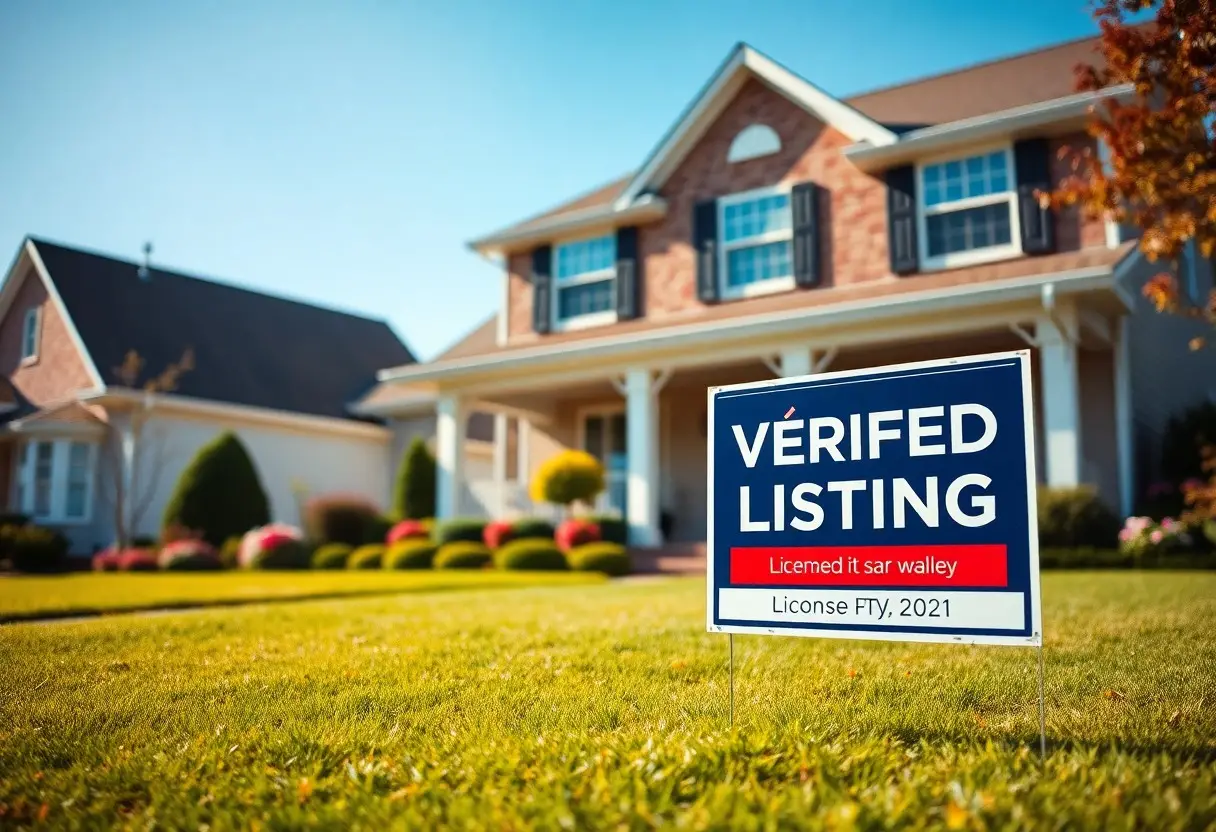Verified listings provide significant assurance that you are engaging with credible and trustworthy information. By focusing on licensed listings, you protect yourself from potential scams and ensure compliance with local regulations, fostering a safer home buying or selling experience. Understanding the importance of verified and licensed listings empowers you to make informed decisions and enhances your confidence in navigating the real estate market. Your investment deserves the highest level of security and authenticity, making these listings a vital part of your homeownership journey.

Understanding Verified and Licensed Listings
Verified and licensed listings play a vital role in your home buying or selling journey, ensuring greater transparency and trust in real estate transactions. These listings are not just a collection of properties; they are vetted and guaranteed by licensed professionals, providing you confidence in the information presented and the legitimacy of the properties you consider.
Definition and Importance
A verified listing represents a property that has been confirmed by relevant authorities or professionals, ensuring accuracy in details such as ownership, price, and condition. For you, this means less risk and peace of mind, as these listings reduce the chance of encountering scams or misrepresented properties, streamlining your search process.
How Listings are Verified
Listings are verified through a multi-step process that often includes background checks by licensed real estate agents or agencies. They assess property titles, validate current ownership, and confirm that listings comply with local regulations, allowing you to focus on legitimate opportunities rather than potential pitfalls.
For example, during verification, agents may cross-reference public records, conduct site inspections, and require legal documentation from property owners. This thorough approach not only ensures that the listing details match the actual property but also helps identify any existing liens or disputes that could affect a transaction. You can trust that a verified listing reflects a commitment to honesty and integrity in real estate dealings, ultimately facilitating a smoother experience for all parties involved.
Benefits for Homeowners
Utilizing verified and licensed listings delivers multiple benefits that can significantly enhance your experience as a homeowner. By ensuring that you are dealing with trustworthy entities, these listings help streamline transactions, reduce risks, and ultimately lead to better decisions, whether you’re buying or selling. You gain access to accurate information that can guide you through the complexities of real estate, making your journey smoother and more informed.
Enhancing Property Value
Verified listings contribute to enhancing your property’s value by ensuring that potential buyers can trust the legitimacy of the transaction. When buyers know they are dealing with authentic listings, they are often more willing to invest in your property, as they perceive it as a safer and more legitimate investment.
Ensuring Safety and Security
Your peace of mind is critical when navigating the real estate market, and verified listings play a significant role in ensuring safety and security. By engaging only with licensed professionals and verified properties, you mitigate the risk of scams, fraudulent listings, or unexpected legal issues.
In an era where real estate scams are increasingly common, trusting verified listings is paramount. A study by the National Association of Realtors shows that approximately 30% of potential homebuyers have encountered a fraudulent listing online. When you use verified listings, you eliminate such risks, gaining access to properties that have been thoroughly vetted and certified. This not only protects you from financial loss but also fosters a safer environment where you can confidently proceed with your real estate endeavors.
The Risks of Unverified Listings
Engaging with unverified listings can lead to a multitude of risks that every homeowner should be aware of. Without proper validation, you may encounter misrepresented properties, misleading information, and potentially dangerous situations. This lack of accountability can result in wasted time, financial loss, and emotional distress when what you see doesn’t match reality. Ensuring that listings are verified protects not just your investment but also your peace of mind.
Potential Scams and Fraud
Unverified listings are breeding grounds for scams and fraudulent activities. You may come across enticing offers that, upon further investigation, reveal itself as a hoax. Scammers often use outdated or stolen images to lure you in, only to request sensitive information or deposits that leave you financially vulnerable. This deception can result in hefty losses, affecting your ability to secure a trustworthy property.
Legal Implications for Homeowners
The legal implications of dealing with unverified listings can be severe. If you find yourself in a contract based on false information, you could face challenges that threaten your financial stability and ownership rights. Furthermore, you may be unable to seek recourse if a seller misrepresents their property, resulting in costly legal battles to resolve the discrepancies.
Contracts rooted in unverified listings often lack the necessary protections. If a seller misrepresents key details, such as the property’s condition or zoning rights, it may lead to costly repairs or fines. In some instances, homeowners have been left responsible for issues that should have been disclosed, like liens or property disputes. Legal representation can become necessary, but the costs can escalate quickly, potentially resulting in significant financial loss. It’s vital to ensure that your listings are verified to mitigate these risks and protect your investment effectively.
The Role of Real Estate Agents
Real estate agents serve as your primary advocates in the property market, leveraging their expertise to facilitate smooth transactions. They possess in-depth knowledge about local listings, allowing them to identify verified properties that align with your needs. Employing a skilled agent can streamline the process of buying or selling, while also ensuring compliance with legal requirements and market norms. Their experience can help mitigate potential pitfalls, making the entire experience more reliable and efficient.
Navigating the Verification Process
Understanding how to navigate the verification process is vital for homeowners. A qualified real estate agent can guide you through the maze of documentation and requirements needed to confirm a listing’s legitimacy. They know the exact steps necessary, from verifying property titles to checking for zoning compliance, ensuring that your chosen listing is both credible and reliable. This foresight can save you time and prevent future headaches.
Importance of Professional Guidance
Professional guidance from a real estate agent can be a game-changer in your buying or selling experience. With their comprehensive understanding of market dynamics and local regulations, they provide insights that are often not apparent to the average homeowner. Their ability to interpret market data and trends allows you to make informed decisions that can significantly impact your investment. For example, an agent can identify neighborhoods with rising values, offering you opportunities that others may overlook.
Technology and Listings Verification
Modern technology plays a vital role in enhancing the verification process of real estate listings. With advanced algorithms and data analytics, platforms can cross-check property details against public records and third-party databases, ensuring that the information you receive is accurate. These technologies help mitigate the risks associated with fraudulent listings, allowing you to make informed decisions based on reliable data.
Advances in Real Estate Technology
Recent innovations, such as artificial intelligence and machine learning, have transformed how properties are verified and listed. These tools analyze vast amounts of data, identifying patterns and anomalies that may indicate potential discrepancies. Improved virtual reality tools also enable you to virtually tour properties, allowing you to assess their condition before making contact with sellers or agents.
Impact on Home Buying and Selling
The influence of technology on home buying and selling is profound. By providing verified listings, technology streamlines your search process and reduces time spent filtering through untrustworthy information. This efficiency not only accelerates transactions but also enhances your bargaining power. Home sellers benefit too, as accurate listings increase their property’s visibility, attracting more qualified buyers.
In a marketplace where competition can be fierce, having access to verified listings directly influences your ability to succeed. With reliable data at your fingertips, you can make quicker and more confident decisions. As a buyer, this means avoiding potentially costly pitfalls associated with inaccurate listings. Sellers can leverage verified information to position their properties effectively, ensuring that they appeal to quality buyers who are ready to transact. Overall, technology fosters a more transparent and efficient environment, benefiting all parties involved in the real estate process.
Best Practices for Homeowners
To maximize the benefits of verified and licensed listings, adopt best practices that enhance your home-buying experience. Start by familiarizing yourself with the local market, keeping an eye on property values and trends. Use reputable online platforms and engage with licensed realtors who provide transparent information. Actively communicate your needs and preferences to ensure a smooth process. Staying informed and proactive can significantly improve your chances of making a successful investment.
Steps to Verify Listings
You can take simple steps to verify property listings effectively. First, cross-check listings with official databases, such as county assessor websites or MLS databases. Next, connect with the listing agent to confirm details and ask for additional documentation if necessary. Additionally, consider requesting a history report of the property to ensure there are no hidden issues. Following these steps helps protect your interests and provides peace of mind during your home search.
Key Questions to Ask Realtors
When working with realtors, asking the right questions is crucial for clarity. Inquire about their credentials, experience, and specifically, how they verify listings. Request details about the property’s history, including previous sales and any disclosed issues. Understanding their approach to listings and communication can help establish trust and ensure your needs are effectively met.
Delving deeper, ensure you understand how often the realtor updates their listings and the sources they use for verification. Ask about their familiarity with the neighborhood and whether they can provide insights on market trends and average time on the market for similar properties. By asking these detailed questions, you can assess their expertise and commitment, which directly impacts your overall buying experience.
Summing up
Now, verified and licensed listings matter to you as a homeowner because they ensure that the information you rely on is accurate and trustworthy. This reduces risks associated with fraud or misrepresentation, giving you peace of mind. By accessing verified listings, you can confidently navigate the real estate market, making informed decisions that protect your investment and enhance your overall home buying or selling experience. Trusting only licensed professionals also supports a more secure transaction environment, ultimately leading to greater satisfaction in your real estate endeavors.



